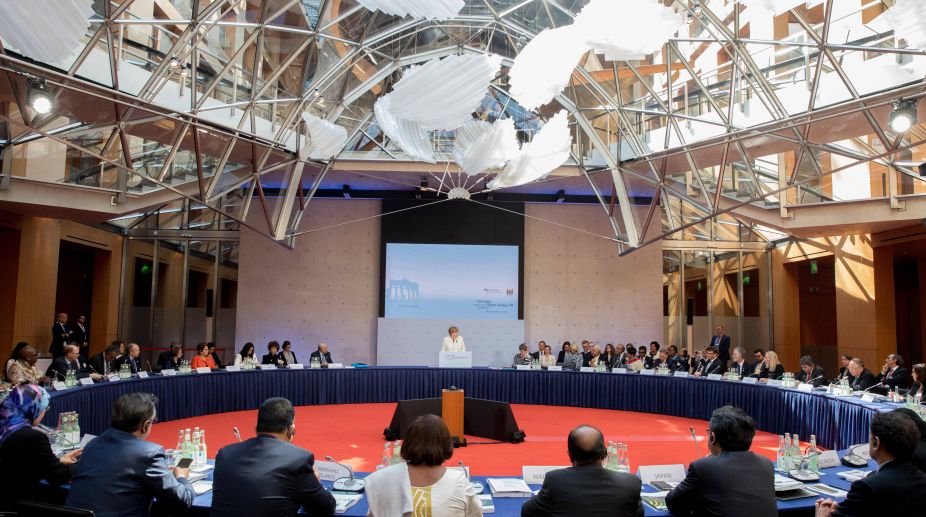China will address the issues related to the implementation of the Paris Agreement to push forward global climate governance, the country's Special Representative on Climate Change Xie Zhenhua has said.
Xie in his remarks at the eighth Petersberg Climate Dialogue here on Monday said China's plan aimed to seek the broadest consensus among the signatories to the Paris Agreement.
He said it reflected the principle of "common but differentiated responsibilities", climate equity, and matching action and support.
In 2016, China's carbon intensity dropped 6 per cent from the previous year, much higher than the original goal of 3.9 per cent, Xie said.
China has taken a series of restrictive measures in the 13th Five Year Plan, including reducing 18 per cent of carbon intensity and raising the proportion of non-fossil energy in primary energy to 15 per cent from 2016 to 2020, according to Xie.
China has launched the South-South Cooperation Foundation on climate change and cooperated with 27 countries to help improve their adaptability to climate change as well as their management and financing capabilities, Xie said.
To carry out the Paris Agreement, China proposes enhancing political mutual trust and accelerating the implementation of the agreement, turning the efforts to implement the agreement into endeavours to promote economic transition and develop new energy industries, boosting win-win cooperation and setting up incentive mechanisms to ensure sustained implementation of the agreement, Xie said.
China will fully support Fiji to host this year's UN Climate Change Conference (COP) and promote the formulation by the conference of a draft resolution on subsequent negotiations following the implementation of the Paris Agreement, Xie said.
The Petersberg Climate Dialogue, an annual informal ministerial meeting launched by Germany in 2010, mainly focuses on preparing for the COP each year.
The Paris Agreement was agreed to by the 195 member economies which attended the 2015 UN Climate Change Conference (COP21) in Paris. It went into effect last November.






